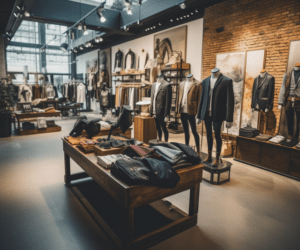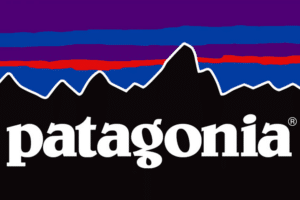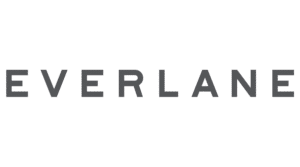Introduction – Ethical Clothing Brands, Men’s
In an era marked by heightened awareness of environmental sustainability, fashion—especially men’s fashion—is undergoing a transformation. Men’s fashion includes personal fashion as well as work fashion. While aesthetics remain pivotal, the ethics of production and the environmental impact of clothing have gained center stage.

This article delves into the emergence of sustainable brands, examining their evolution in the men’s fashion landscape.
The Rise of Ethical Men’s Fashion
As we moved from an industrial age to a globalized world, the fashion industry saw a paradigm shift. Men’s fashion, once dominated by mass production and fleeting trends, is now embracing sustainability. Reports suggest that by 2025, the sustainable fashion market could surpass $8 billion, with men’s ethical fashion playing a significant role.
Unraveling the Carbon Thread
Did you know the fashion industry contributes nearly 10% of global carbon emissions? In response, various brands have aligned with the Paris Agreement’s ambitious targets, aiming to keep global temperature rise below 1.5°C. This commitment reflects a broader industry trend, pushing for environmentally-friendly practices and materials.
Spotlight On Four Big Ethical And Sustainable Men’s Brands
1. Patagonia

Patagonia is fervently committed to combating the climate crisis by encouraging individuals to collaborate with grassroots organizations focused on regenerative agriculture, renewable resources, and conservation.
They underscore the power of collective action by presenting a myriad of volunteer opportunities, petitions, and events such as collaborating with the National Organic Coalition or joining in the Elevate Games 2023.
As a testament to their commitment, Patagonia has instituted a self-imposed “Earth tax,” titled “1% for the Planet”, directing this contribution to environmental nonprofits striving to protect our planet’s air, land, and water.
Last year alone, they supported 1,020 diverse groups addressing issues ranging from biodiversity loss to aggressive climate action.
Further melding sport with activism, their Global Sport Activists® initiative enables Patagonia employees to leverage their influence in the sporting world to advocate for crucial environmental and social transformations.
This passion is echoed by various ambassadors, including trail runners, surfers, and conservationists, who champion environmental causes.
Through Patagonia Action Works, the company bridges the gap between individuals and Patagonia-supported causes, facilitating meaningful interactions and support towards pressing global issues.
2. Everlane

Everlane operates on the principle of “Radical Transparency”, emphasizing the importance of making informed, ethical choices in the fashion industry.
They partner exclusively with high-standard, ethical factories worldwide, fostering close personal relationships and ensuring each facility maintains a compliance score of 90 or above, based on fair wages, working hours, and environmental considerations.
Unlike the trend-driven fast fashion model, Everlane focuses on timeless, durable designs crafted from the finest materials, such as Grade-A cashmere and Peruvian Pima tees.
In a unique approach to pricing, Everlane transparently breaks down the true cost of each item – from materials to labor to transportation – allowing consumers to purchase quality products without the traditional retail markup.
On occasions like Black Friday, the brand showcases its commitment to ethical practices by donating its profits to improve the lives of its factory workers.
3. United by Blue

United by Blue (UBB) is steadfast in its mission to address the pressing environmental challenges associated with waste, particularly in our oceans.
With an unwavering anti-waste mindset, they commit to removing a pound of trash from the environment for every product they sell.
Their efforts to combat the alarming prediction that there could be more plastic than fish in the ocean by 2050 include a range of cleanup initiatives.
Since selling their first t-shirt, UBB has organized community cleanups, and they’ve expanded their reach with DIY cleanup kits, allowing individuals to contribute to the mission wherever they are.
High Yield Cleanups target exceptionally polluted areas, removing over 50,000 pounds of trash per event.
UBB also collaborates internationally with partners such as Plastic Bank and Sungai Watch to address trash issues in heavily polluted waterways in the Philippines and Indonesia.
Beyond cleanups, the brand emphasizes sustainability in its business operations. They prioritize low-waste materials, incorporating non-toxic, regenerative fibers, and recycled fabrics into their products.
Adhering to a slow fashion approach, they ensure minimal waste and overproduction, collaborating with manufacturing partners who maintain stringent social and environmental health certifications.
Furthermore, UBB is dedicated to eradicating single-use plastics, not just from the environment but also from their packaging and supply chains, reinforcing their commitment to a cleaner planet.
4. Outerknown

Birthed from the vision of surfer Kelly Slater, Outerknown is more than beachwear. Their journey is about crafting garments with suppliers who value sustainability and fair trading, making every stitch a testament to responsible fashion.
Outerknown, in its seven years of existence, has demonstrated an unwavering commitment to environmental protection and the support of fair labor.
Through initiatives like Outerworn, they have prevented over 1,800 garments from ending up in landfills. A substantial $133,000 has been channeled towards enhancing workers’ lives via the Fairtrade Premium.
The brand has set ambitious sustainability targets for 2030, and their efforts to be more eco-conscious are evident in the improvement of their preferred fiber usage from 87% to 95% in 2022.
This focuses on sustainable materials like organic cotton and hemp.
They’ve also made significant strides in sourcing, partnering with B Corp Certified suppliers, transitioning 67% of their supply chain to prioritize human rights, and promoting the highest labor standards.
In collaboration with Bergman Rivera, they’re championing Regenerative Organic CertifiedTM farming practices, converting 28 acres of farmland to this method.
They remain grateful to their supporters and frequently collaborate with non-profits like The Ocean Cleanup and Surfrider Foundation, further amplifying their positive impact.
The Direct-to-Consumer Green Model
Modern brands, like Allbirds and Pact, have embraced the direct-to-consumer model. This approach not only minimizes costs but also enhances oversight of ethical practices throughout the supply chain. By eliminating middlemen, brands can ensure that their products are both sustainable and affordable.
Conclusion – Men’s Ethical Clothing Brands
The realm of men’s fashion is no longer just about fleeting trends; it’s a statement of our global responsibility. With brands like Patagonia, Everlane, United by Blue, and Outerknown leading the charge, sustainable fashion is more than a niche—it’s a movement.
It’s time for us, as consumers, to not only admire these changes but to actively support and champion them, stitching together a future that’s as stylish as it is sustainable.
